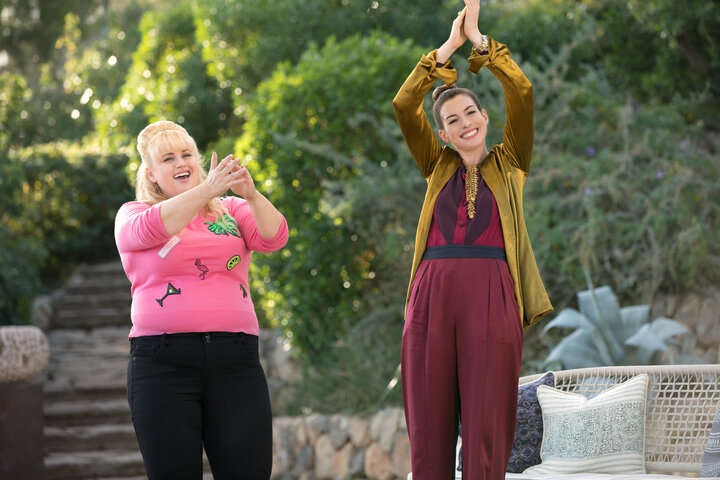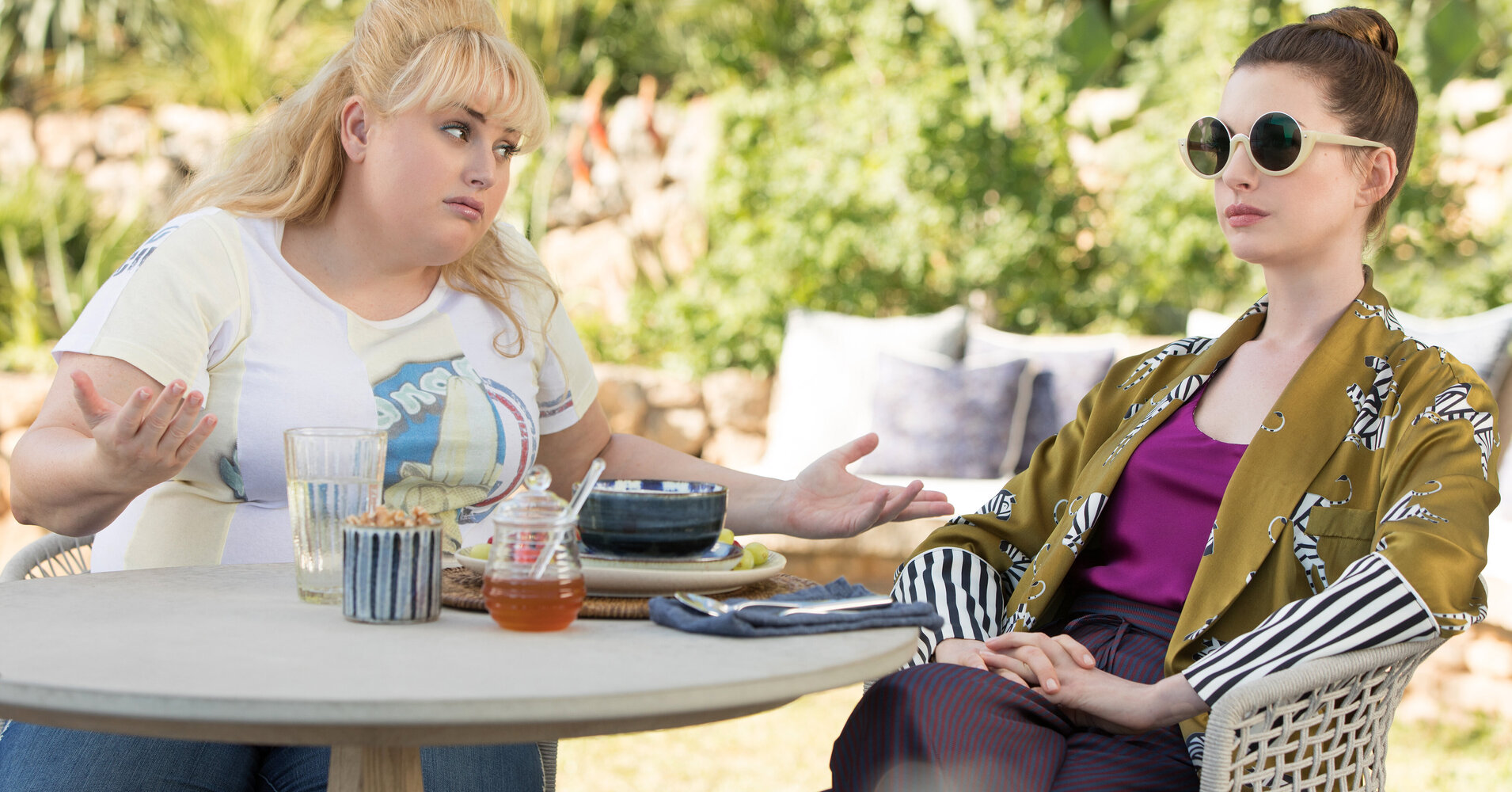[ad_1]
“The Hustle” begins with a Meghan Trainor song, as if to promise that what follows can’t possibly be more cloying. It only sort of makes good on the offer, but you certainly get what you signed up for: a broad, madcap comedy built around Rebel Wilson, whose brand of shameless buffoonery is as transfixing as it is one-note.
Anne Hathaway lands top billing, but the movie ― a gender-swapped remake of “Dirty Rotten Scoundrels,” which is a remake of the Marlon Brando film “Bedtime Story” (exhausted yet?) ― revolves around Wilson, playing a con artist with a noble mission to scam those dirty rotten scoundrels known as men. Wilson’s leap to lead roles has been spotty at best. When expanded, the wry egotism she brought to “Bridesmaids” and “Pitch Perfect” becomes her downfall. She’s so committed to her schtick that she forgets to come back to earth, and what works in small doses winds up stretched to its breaking point, no matter her amusing vocal dexterity.
Such is the case in “The Hustle,” which is more buddy whomp than buddy romp. In the south of France, an American grifter named Lonnie (Wilson) finds herself embroiled in a turf war with Josephine (Hathaway), a rich Brit who has also taken to swindling vain, horny males. Apparently there’s only room for one international con artist on this riviera. They try teaming up, with Lonnie pretending to be Josephine’s crazed halfwit sister in a scheme to scare away Josephine’s fiancés and make off with the pricey engagement rings, but the pair wind up scamming each other in the process. After a bunch of tomfoolery, they launch an all-out war, questing to be the last woman standing in a bid to rob an earnest 21-year-old tech billionaire (Alex Sharp).

“The Hustle” tries to have it two ways. It’s a feminist revenge fable that lets Josephine explain her strategy with lines like, “No man will ever believe a woman is smarter than he is.” The movie is at its most fun when Josephine plays ditzy so she can lure dudes into her web. (Hathaway is especially winning in those scenes because they let her layer a performance on top of a performance.) But it’s also a confused trifle that plays into battle-of-the-sexes clichés and then ― mild spoiler alert ― watches blithely as Lonnie and Josephine accept a man’s help in bettering their schemes for no good reason.
Usually, if there are enough laughs, it’s easy to look past a comedy’s muddied messaging. That’s not the case here. Directed by Chris Addison (“Veep”) and written by Jac Schaeffer (“Captain Marvel”), “The Hustle” relies on antics that grow thin alarmingly quickly. It coasts on about a dozen fat jokes, constantly reminding us that Josephine is the beautiful one and Lonnie the wannabe. (To that end, Wilson’s self-confidence is a saving grace; she seems unwilling to buy into that duality, no matter how much it’s thrust upon her.)
In an unfunny sight gag that steals from the Melissa McCarthy hit “Tammy,” Lonnie tries to hurl herself over a table, only to plop down like a fish helplessly tossed ashore. Even when the jokes are less corrosive, they’re rarely more cogent. It doesn’t help that the camerawork has no pizzazz whatsoever; at times, Hathaway and Wilson seem green-screened in.

Hathaway, of course, gives her theater-kid all, borrowing a mode that’s similar to her scene-stealing turn in “Ocean’s 8.” A haughtier-than-thou Hathaway is a great Hathaway indeed, but her upper-crust English accent is so performative it seems like a gag that’ll be explained at any moment. It isn’t. In a more clever movie, a spoofy accent would be welcome. Here, the only thing saving it is Hathaway’s physical commitment to such vainglorious snobbery.
Even if it weren’t a remake twice over, “The Hustle” treads stale ground without raising its characters’ stakes. The uncultured renegade and the annoyed sophisticate are classic comedic foils put to much better use elsewhere ― “A Simple Favor,” to use a recent example that captured an acrid tone delicious enough to justify its inherent silliness. Ultimately, this exercise in gender reversal bears little fruit, providing another reminder that re-engineering properties once led by men is a cheap shortcut for giving women sterling parts (see also: “Ghostbusters,” “What Men Want”).
By the end, the movie has essentially upended, or at least become ambivalent about, the girl-power cause on which Josephine and Lonnie built their entire businesses. They might as well go back to the Meghan Trainor tunes.
[ad_2]
Source link

